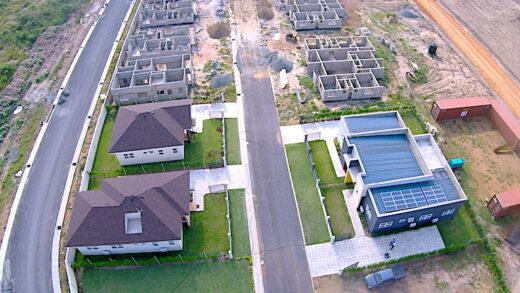REITs are amazing channels for raising finance for affordable housing in Africa. In spite of this, certain institutional backlogs tend to retard the advancement of REITs in Africa.

Contrary to the situation in many advanced countries, REITs in Ghana are still in their early stages of development with positive growth prospects once the requisite structures are put in place to ensure the development of REITs in the country.
Here are four things you should know about REITs in Ghana
- There is no listed REIT on the Ghana Stock Exchange
Ghana currently has no REIT listed on its stock exchange. Although it has the Republic REIT – the only REIT in Ghana, this REIT is not listed on the Ghana Stock Exchange.
A major driving force for the listing of REITs on the stock exchange in the country would be the availability of quality information for investors to make informed investment decisions. This availability of information is widely termed as market transparency. Ghana’s real estate market happens to be quite low on market transparency which tends to stifle advancement of REITs and explain why there is no REIT listed on Ghana’s stock exchange.
- REITs Legislation in Ghana was introduced in 2019
Ghana introduced the securities industry guidelines in 2019 to regulate the operation of REITs and also provide some clarity to the operation of REITs in the country.
Clearly, Ghana is still in its early stages of REITs development. Although, the Republic REIT has been in existence since 1994, there has been no specific legislation to guide its operations. However, legislations play a vital role for the development of REITs and provide general standards for the operation of REITs.
- Many Ghanaians are unaware of REITs as an investment asset class
If you randomly speak to a group of Ghanaians about investments, chances are that, many would not have an idea of what REITs are. This is because there is less awareness about the existence of REITs as an investment. Many retail investors tend to be more familiar with treasury bills and fixed income investments, not because they do not like the idea of REITs but because many are unaware of REITs.
- Institutional Investors find it risky to invest in Ghanaian REITs
It is believed that institutional investors have a key role to play towards the advancement of REITs. In spite of this, many institutional investors find it risky to invest in REITs due to issues of land tenure security in the country. The idea of investing in real estate only to have to deal with many years of land litigation discourages many institutional investors in the country from allocating funds to REITs.
In effect, Ghana’s land administration system has to an extent contributed to the slow pace of advancement of REITs. In Ghana, poor land administration system evidenced in multiple sale of lands, indeterminate boundaries and poor lands records have discouraged many institutional investors from venturing into REITs. However, the role of institutional investors such as pensions funds is very key to driving investments into REITs.
In spite of this, the introduction of the new land law in 2020 which seeks to address many of the issues related to land administration in the country presents hopes of renewed investor confidence in real estate as an asset.
Again, the advancement of REITs in Ghana requires the development of a well-functioning primary real estate market where quality information can be easily accessed to guide the decisions of investors.
Read IMEK Africa’s Accra City Report to know more about the dynamics of Accra’s real estate sector.
Follow saasepedia on Instagram and twitter; and subscribe to our youtube channel for more content on real estate.












